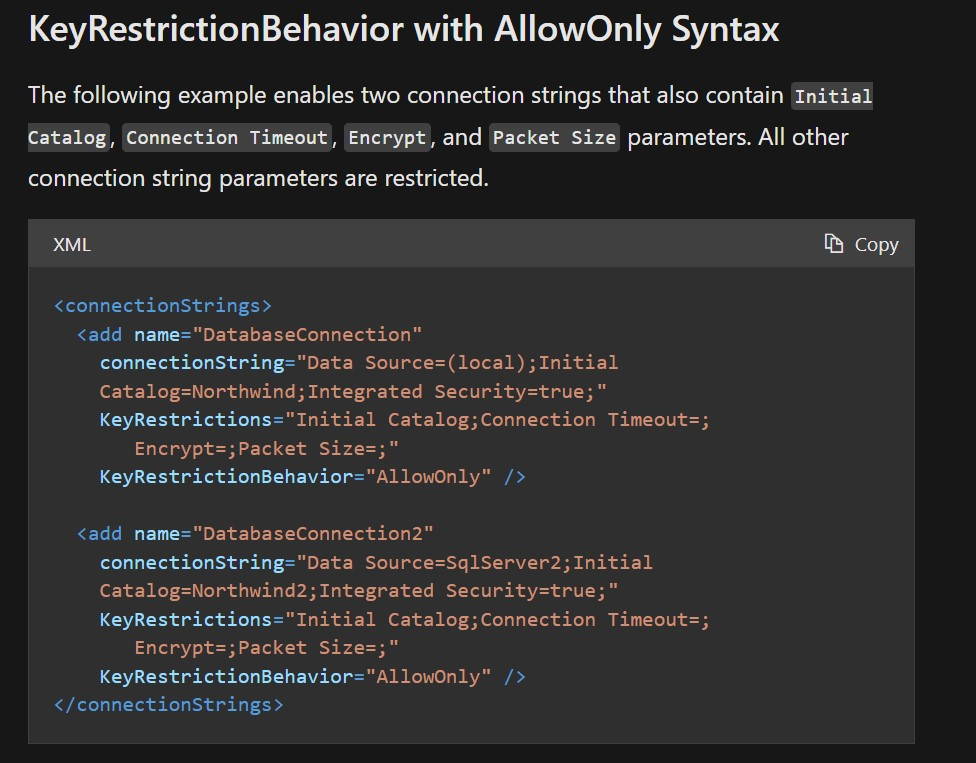Like most corporate-backed languages, Dot Net is, and will always be, one of the languages business-oriented developers have to master. Trying to make a career developing business applications for small to large organizations without learning Dot Net can be frustrating at best, if not impossible.
If you are thinking about hiring a Dot Net developer or are just curious about what Microsoft’s most successful programming language can do for you, then you’ve come to the right place.
This guide answers pertinent questions regarding .NET development in the real world. What makes a Dot Net developer? What specific Skills for a .Net Developer have today? The focus is of the guide is helping employers looking to hire Dot Net developers.
First, some essential facts about Skills for a .Net Developer that every recruiter should know before interviewing candidates in 2022.

What is .NET?
According to Microsoft- the creator and owner of the framework- .NET is a free and open platform used to create applications. Most .Net developers create custom or proprietary applications for businesses such as enterprise resource planning applications (ERPs), point of sale systems, customer management systems, etc.
Since October 2007, the once proprietary .NET development framework became open source with the folks at Microsoft publishing its source code under the Microsoft Reference Source License (MS-RSL). This was a massive step for .NET as it opened it up for more developers and other opportunities like cross-platform support. Today, .NET is used widely and relied upon for business-oriented application development
If your company has been using Microsoft as its primary software provider, you probably have used software developed and managed under the .NET framework. You also stand to benefit a lot from having all your solutions developed with .NET because it’s the most compatible and reliable framework for windows.
As a framework, .NET has a lot of support and backing from its parent company Microsoft as the main framework for applications developed for all their services. On top of that, there is a large pool of independent developers and corporate contributors working on it. This makes .NET a reliable and future-proof development platform for everyone involved.
- Microsoft initially developed .NET as a proprietary product for developers creating applications for its ecosystem.
- Dot NET has been an open-source software development framework under the Microsoft Reference Source License since 2007. It is a framework tailor-made for today’s demanding business applications, especially those made to be run on Windows infrastructure.
- A framework that allows developers to create complex applications quickly and easily by using the vast code libraries (Frame class library) and running in the Common Language Library (CLR).
Microsoft built the .NET framework with these design principles:
1.Interoperability
2.Security
3.Memory Management
4.Performance
5.Portability
6.Simplified deployment
Interoperability
The principle of interoperability in .NET development means that Applications developed under the framework have to have a working level of interaction over different versions. Most software developed in .NET can run in both new and old versions of Windows and communicate with old versions of .NET applications when needed.
Security
The .NET framework utilizes Code Access Security, validation, and verification. Applications developed with the framework follow the security guidelines provided under these three principles to secure data and functions.
Code Access Security (CAS) is a. NET’s approach to prevent software breaches through malicious code injection. The solution prevents unauthorized code from performing functions that the developer has indicated as privileged. It is required that .NET developers follow Code Access Security guidelines when writing their applications.

Validation and verification have been a part of most of Microsoft’s security solutions since the days of Visual Basic. It is a principle that involves checking user input and other actions to prevent unauthorized access. Developers under the .NET framework should proactively add validation and verification functionality in their code for security purposes.
Memory Management
Unlike some coding frameworks languages, memory management is handled automatically in .NET through the efficient Common Language Runtime (CLR). Developers can concentrate on writing their applications and performing other forms of optimization. The .NET CLR takes care of allocating and freeing up memory in the background.
Performance
Performance is a critical design principle under the .NET framework that developers need to be adept at before developing serious business applications for today’s organizations. The framework itself uses a just-in-time compiler for faster program execution. In the same spirit, developers also need to optimize application performance.
Portability
Applications developed with .NET are portable or cross-compatible, meaning they can run on non-Windows systems such as Linux. Cross-platform support in .NET has also improved immensely since the open-sourcing of the framework over a decade ago. One of the reasons behind opening up .NET to the open-source community was to boost cross-platform adoption.
Simplified Deployment
Lastly, Microsoft built the .NET framework with the principle of simplified deployment. Simplified deployment in the context of .NET development means software or applications can smoothly transition from code to fully functional software without interfering with existing operating system components.
The design principles of the .NET framework are the crux of application development. A developer must demonstrate competence in designing and developing applications with these principles to be considered for hire.
What is Dot NET developer do?
Developers who specialize in .NET write applications and web applications using any of the supported languages under the framework. Look for developers who have the skills and experience to work exclusively under .NET if you want the best in the industry. However, since .NET is broad, most developers specialize in one facet like ASP.
Most .NET developers write business applications and web applications made robust, reliable, and secure. NET is quite broad and supports all niches, including game development, web, server, and desktop development. You can make anything imaginable with the .NET framework.
To hire a .NET developer, you need to be clear about what they will be doing for you from the word go. For instance, not all ASP. NET developers can write applications for Windows or servers. Skills for the different languages and libraries under the .NET framework are not easily transferrable.
What is a NET full stack developer?

Full-stack developers in the .NET ecosystem are developers who can work on the backend portion of a web application and the frontend. They use ASP.NET and a combination of compatible web technologies such as MVC, HTML, SQL to develop a fully-functional web application from the ground up.
Full-stack development in .NET is multi-faceted and requires developers who have a firm grip of ASP.NET and other popular backend and frontend web technologies. At the very basic a full-stack .NET developer should have proven skills in the following areas/technologies:
- HTML – The essential requirement for any web developer
- ASP.NET
- .NET Core
- C#- C# is the primary language of .NET ASP web development
- CSS
- JavaScript
- Knowledge of web servers cloud hosting with Azure
- jQuery
- Knowledge of databases and database manipulation languages like SQL
- Visual studio – the primary IDE for ASP.NET development
- Software design, implementation, and testing
Full-stack .NET developers often act as project managers overseeing specialized web developers who work on the various elements of a project. However, it is possible to work with one or two .NET developers who can handle all aspects of a web project from start to end.
What languages do .NET developers use?
The .NET framework or development ecosystem is quite broad. You can develop pretty much anything under the .NET umbrella using any language. From games to desktop applications, server applications to cloud software, web applications to mobile applications.
The languages used by .NET developers include:
- C# – Pronounced “C#,” this Microsoft language can be used to develop any software and web applications in combination with other technologies.
- F#
- Visual Basic
- VB.NET
- J#
- JSCRIPT.NET
- Iron Ruby
- Iron Python
- ASML
Other languages not officially recognized or seen as part of the .NET framework like HTML, CSS, JavaScript, MYSQL, and Typescript still interface with .NET differently. The technologies you use while developing with .NET depend on the nature of your project and resources.
Why .Net is Popular
The entire .NET framework was once dreaded and loved equally, especially when it was a proprietary platform with Microsoft controlling every aspect. However, the framework’s popularity has grown significantly in recent years. The rise in popularity can be attributed to many things and the amount of work that has gone behind the scenes to make it what it is today:
Some of the main reasons why .NET is so popular are:
- .NET is a mature and reliable platform
- It has a strong community and solid corporate backing (from Microsoft and its partners)
- .NET is quite versatile- Developers can create anything with the framework
- It is cross-platform- Can work across operating systems
- It’s backward compatible
- .NET is consistent across architectures
- It is regularly improved and updated with new features and security patches
- It has a vast library of resources and components, which makes it easier for developers to create complex applications with limited timelines and resources
- It is open source
- It has a solid and well-engineered IDE
- You can find all the resources you need for .NET in one place
- There are many tools made for the framework
- There is a solid and predictable career path for developers
- It supports both corporate and non-corporate projects
- There are plenty of learning and support resources for .NET across the web
- .NET is future proof and here to stay
What .NET Recruiters Should Know About the Platform
Recruiting for .NET can be a daunting task, especially if you have little experience with the framework. However, recruiters should be very clear from the beginning what technology or application they want to develop before hiring. For instance, if you’re creating a web application, you should look for developers skilled in ASP.NET and C#.
Specialization is an important thing to know and consider when recruiting for the platform. Due to its size and versatility, it is hard to find developers who have mastered the entire framework. Expect to find applicants in one area and need support from others who have skills in another area to complete a project.
NET Core Framework

NET Core is a rapidly growing general-purpose development platform that Microsoft and its partners support. NET Core is seen as a successor to .NET with new features and a bigger community. It’s fully open-source and has superior cross-platform support.
Developers building new applications are encouraged to use NET. Core-the next big- thing while those maintaining old applications can use. NET. Both platforms share many things, such as the API. NET core is ideal for new projects made for the browser, the cloud, or other operating systems.
Skills a .NET Developer Should Possess
While .NET development is a broad term, you should look at the following essential skills when hiring:
- Programming skills – To develop for .NET, one must have a solid background in software development in general. NET can be pretty intense and structured, so a formal education in software development is necessary.
- Experience in C#- This is the primary programming language in .NET, so a .NET developer must have a firm grasp of the language. Of course, this might not be necessary if you are working with any of the other supported languages like Visual Basic or F#.
- Web programming and design languages like HTML, CSS, and JavaScript are looking for a web developer.
- Experience with Visual Studio- The primary IDE for .NET and .NET Core.
- Experience with servers and client-side technologies
- Experience with ASP.NET MVC- Model-View-Controller design philosophy for ASP.NET web development
- Experience with databased technologies and manipulation languages like SQL, SQL Server, NoSQL, MySQL, Oracle, MS SQL, etc. This depends on the database you will be using in your project.
Microsoft Certified Solutions Developer (MCSD)
One of the certifications you should ask for when hiring .NET developers is the MCSD (Microsoft Certified Solutions Developer). A developer with an MCSD certification from Microsoft has the skills necessary to develop business applications using Microsoft’s toolkits and technologies. These are highly-sort-after professionals who have specialized in .NET development.
Soft Skills a .NET Developer Should Possess
Apart from the technical coding and software development skills, it would help to look for the following soft skills in a .NET developer. These skills are necessary for success in a software development environment where there are all kinds of stakeholders:
- Project management
- Business skills
- Customer support
- Communication skills
- Presentation and marketing skills
- Time management
- Leadership skills
- Collaboration skills
- Problem-solving skills
Responsibilities of a .NET Developer
A .NET developer is primarily responsible for the coding, implementing, testing, and deploying of .NET software or web applications for their employers. They handle every stage of the software development process in collaboration with other stakeholders until a finished solution is delivered.
How to Verify a .NET Developer’s Skills
One of the easiest ways to verify a .NET developer’s skills is to check if they are certified to develop Microsoft solutions. However, this only works for junior developers and organizations looking for Microsoft solutions developers. For experienced or senior .NET developers, you should look at their portfolio or test their skills with the help of a certified developer.
Tips to consider before the candidate interview

Hiring a developer can be challenging even for experienced recruiters. There is a lot of software development jargon involved, and sometimes, certifications may not tell the whole story. Consider doing the following before the interview:
- Read and understand the job requirement and what your organization is looking for.
- Check the candidate’s portfolio or ask them to send over information regarding past projects they have worked on.
- See what other recruiters are looking for in similar positions. Sites like Indeed.com could help a great deal.
- Prepare well for the interview and, if possible, have an experienced software developer in your team
Net Developer Questions
Here are examples of questions you could ask in a .NET developer interview.
- How long have you been working with .NET?
- What responsibilities have you held as a .NET developer?
- Are you a .NET contributor or involved in the community?
- How does the .NET framework work?
- Which .NET languages are you adept at?
- What other coding experiences do you possess?
- Do you have experience building and managing Windows solutions?
- Do you possess any Microsoft certifications and achievements/awards?
- What experience do you have with Visual Studio?
- Explain Microsoft Intermediate Language
- Is ASP.NET different from ASP? If yes, explain how?
- Explain role-based security in .NET
- What are security controls available on ASP.NET?
- What is the use of manifest in the .NET framework?
- What do you know about JIT?
- What are the different types of constructors in c#?
- What is the difference between namespace and assembly?
- Explain MVC.
If you can attract top .NET talent, you will rest assured that your desired solutions are developed to your specifications. Hire a dot net developer now with the help of professional recruiters who understand .NET development.



